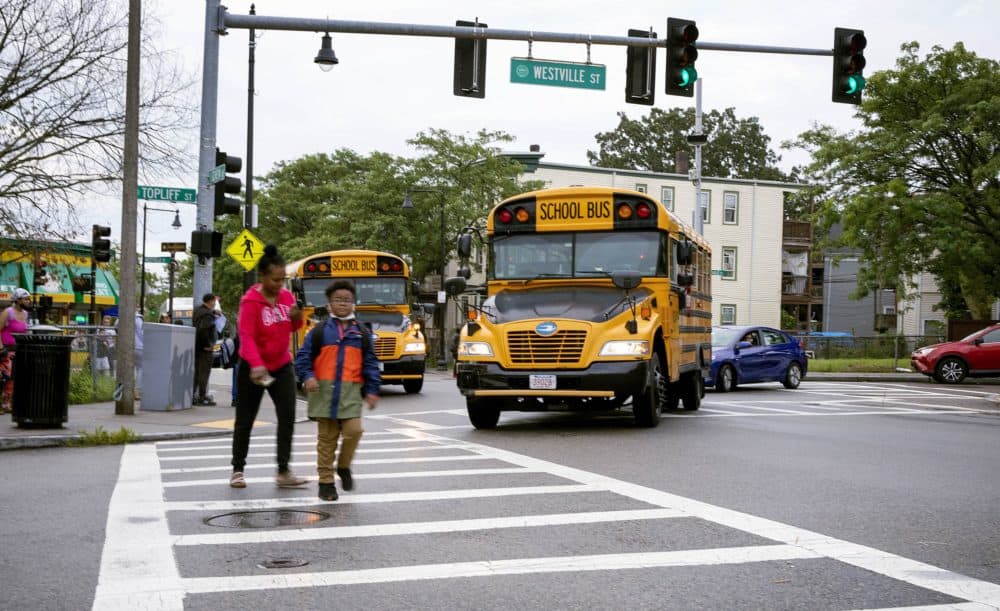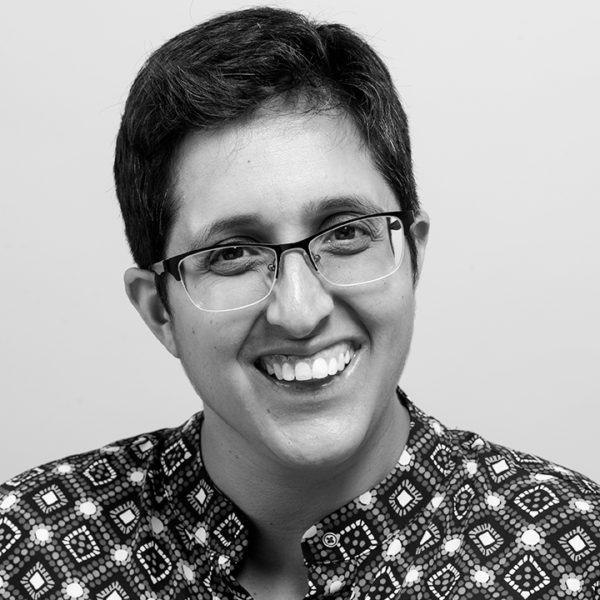Advertisement
Commentary
What's Missing From Back To School This Year? The Time To Heal

Last week, after 18 months of interruption, nearly all K-12 students in Massachusetts finally returned to school in person. They did so as changed people — changed, as we all have been, by an ongoing pandemic, by intense levels of political unrest, by a climate crisis that worsens every day. Yet, I fear our school systems will not have changed to meet them where they are, in this moment, because of state leaders’ desperate need to “return to some level of normalcy.”
The problem is that between trauma and normalcy, there is a middle step that seems to have not been included in the state’s equation: healing.
Our state has seen over 750,000 COVID-19 cases since March 2020. We’ve lost more than 18,000 residents to this virus. Every single one of those cases touched at least one student. And when we look further, to the national level, or even the international level, it’s clear that the young people of our state have been immersed in 18 months of collective trauma that they will bring with them on the first day of school.
I have been a middle school teacher in the Boston Public Schools since 2003. In my 18 years as an educator, I have often wished for a school system that was more responsive to the needs of young people. That wish has only intensified during this pandemic, where I have witnessed so many of my students experience loss, housing and food instability, unemployment, mental health crises and severe illness.
My students have carried a lot of pain with them through the last 18 months, and when I’ve asked them what they need from us, their response has been consistent: they need support, they need relationships, they need healing. Where policymakers fret about learning loss, my students are preoccupied by more palpable losses. Ones that, unless thoroughly mitigated, make it hard to even think about learning.
[P]olicymakers fret about learning loss, my students are preoccupied by more palpable losses.
When state officials express concern about the mental health impacts of school closures during COVID on young people, they are absolutely right to do so. The question, however, is whether the state is then allowing us to create the conditions in our schools needed to support young people in dealing with these impacts, or whether the conditions in our schools will exacerbate their struggle.
Healing happens when we allow people to go at their own pace. When we surround them with loving people, and allow them the space and time to be in relationship with those people. When we let their needs — not the needs of a system — dictate what happens.
Imagine trying to heal in classrooms with 30 other students, where you move from 55-minute class to 55-minute class, where lunch is barely long enough to choke down a sandwich, where your learning is measured, rather than nurtured. Where your ability to graduate is predicated on a one-off test, rather than years of work and learning.
This way of doing school wasn’t right prior to the pandemic. In the context of ongoing trauma, I am even more convinced that we, as adults, need to let go of our ideas of normal, and build a system that is responsive to the needs that young people are communicating to us, in this moment, and moving forward.
Harvard education professor Jal Mehta wrote an op-ed last winter called “Make Schools More Human” in which he outlined the steps we ought to take to make our schools human-centered, rather than system-centered. His suggestions included fewer, longer classes, school structures designed to prioritize deep relationship building, curriculum sequences that allow for students to move at their own pace towards shared goals, a paring down of pages of standards to instead let young people focus on deep learning of the most essential knowledge and skills, and less policing of young people’s bodies.
As a state, we are doing exactly none of those things.
“You can’t jump to reconciliation. You can’t jump to reparation or restoration until you tell the truth."
Bryan Stevenson
Young people will return to schools this fall that are structured almost exactly like the ones they left, only with slightly more mental health supports, a mask mandate and weekly pooled testing for those who choose to participate. They will churn through too many classes with too many people, get too many negative messages about what they are wearing or saying or eating, move too fast through curriculum whether they’ve fully comprehended it or not, all because our state leaders seek “normalcy" — and normalcy in education in the last two decades has been about control and compliance more than it has about learning or healing.
Civil rights leader Bryan Stevenson says:
"You can’t jump to reconciliation. You can’t jump to reparation or restoration until you tell the truth. Until you know the nature of the injuries, you can’t actually speak to the kind of remedies that are going to be necessary."
He’s talking about our country’s long history of racial violence, but I also think he’s describing a problem with the way America handles every instance of collective trauma. We just try to sweep the harm under the rug and move on. And because we don’t take the middle step of healing, that pain festers and festers and continually bubbles up to the surface when we least expect it.
Returning to normal without acknowledging the profound harm that has happened, and radically changing our educational practices — from class sizes to standards to assessment to start and end time of the school day — to mitigate that harm, enacts another kind of cruelty on our young people: the cruelty of not having your pain acknowledged or held. The cruelty of not being seen for all of who you are.
Our young people need us to see that this is the time for healing. And our schools need permission to prioritize that healing, rather than normalcy.
